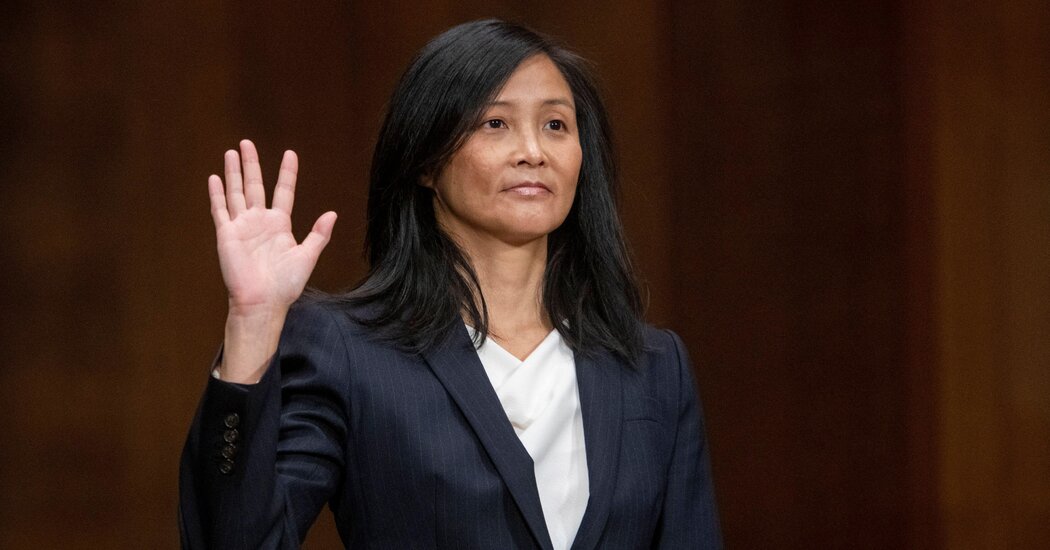
“We were grateful to discuss potential candidates from the Sixth Circuit with both Tennessee senators’ offices starting several months ago, and we are enthusiastic about Andre Mathis’s historic nomination,” said Andrew Bates, a White House spokesman.
In the past, senators’ opposition to a judicial nominee from their state would be enough to derail the confirmation. Under an arcane Judiciary Committee practice, the two senators would either return what is known as a “blue slip” — a piece of paper signifying that they had been consulted about the nomination, in line with the Constitution’s requirement for the president to seek the Senate’s “advice and consent” — or withhold it, effectively blocking the selection.
But Republicans ended that tradition during the Trump era and Democrats are unlikely to restore it, freeing the White House to go its own way if it chooses, though administration officials say they intend to confer in good faith with Republican senators.
While Republicans can slow the process and try to put up other roadblocks, changes in Senate rules mean that Democrats can advance and confirm judges with a simple majority vote. But doing so requires Democrats, who control the 50-50 Senate through Vice President Kamala Harris’s tiebreaking power, to hold together and be willing to devote floor time to a nominee.
Democrats summoned Ms. Harris last month to break a tie to allow another nominee, Jennifer Sung, to clear the Judiciary Committee after the panel deadlocked on her nomination to the U.S. Court of Appeals for the Ninth Circuit. Republicans criticized Ms. Sung over a blistering letter she signed in 2018 opposing the nomination of Brett M. Kavanaugh to the Supreme Court.
The letter from Yale Law School students, alumni and educators called Justice Kavanaugh an “intellectually and morally bankrupt ideologue intent on rolling back our rights and the rights of our clients.” Ms. Sung apologized for the letter during her confirmation hearing in September and conceded it was overheated. Republicans still unanimously opposed her nomination, making her the first Biden nominee to require a floor vote.
Republicans have objected to many of the president’s judicial picks, calling them too liberal and insufficiently grounded in the Constitution. But most of the nominees have drawn at least a smattering of Republican support for confirmation — though in the past, judicial candidates often did not require roll call votes at all.




